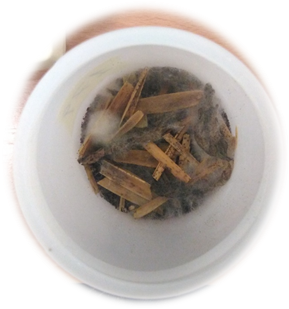Libya Munoz Aguilera
The observations made confirm that the domestication of plants by humans may have altered soil processes and, in turn, other processes that occur in the ecosystem. The knowledge of these processes can be used for beneficial purposes such as the recovery of soil fertility, its restoration through regeneration processes (such as the recycling of organic matter, observed in this case), use of plant residues, among others. .
By comparing the litter samples from domestic plants with those of their closest wild relatives, the scientific team led by the URJC was able to observe that the litter of the modified individuals decomposed more easily, causing, in turn, changes in the decomposing organisms. ground. In some cases, decomposers became more diverse compared to those from soils with wild plant litter; in other cases, they became less diverse.
The results obtained, published recently in the scientific journal Plant Soil, reveal that bacterial communities changed in each houseplant differently. Fungi mainly increased their diversity and other organisms such as nematodes or "roundworms" did not show changes depending on whether the litter came from domestic or wild plants. However, an increase in those species of nematodes that feed on bacteria was observed in soils with litter from domestic plants, evidencing the alteration of the decomposition process at different levels. "The striking thing about these changes is that they were not the same for the organisms that we analyzed," says Javier Palomino de la Rosa, a URJC researcher and co-author of the study.
Possible alternatives to chemical fertilizers
In this work, different samples of the same soil have been compared in which litter from domestic plants and their closest wild relatives (amaranth, borage, cabbage, millet, chicory, sunflower, lettuce, tobacco, sorghum and corn) have been decomposed. ) during three months. The nematode worms were counted and identified from one sample and the DNA of bacteria and fungi was extracted from the other to identify their abundance using metagenomic techniques, which are those that use the study of genetic material for this.
“It is likely that domestication affects the recycling and permanence of nutrients in the soil, since different communities of soil organisms consume litter at different rates and release nutrients in different ways. However, more research is needed to verify the specific nutrient flows associated with the decomposition of each crop species. Knowing these flows could help us use crop residues to supplement soil fertilization and reduce the use of chemical fertilizers”, explains the URJC researcher.
This study has been carried out within the research project "Agricultural diversification: evolutionary determinants and effect on ecosystem services", which brings together researchers from the Rey Juan Carlos University (URJC), Wageningen University (Netherlands) and from various institutes belonging to the Higher Council for Scientific Research (CSIC).




